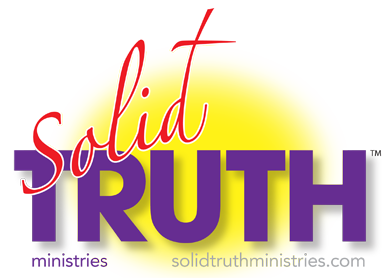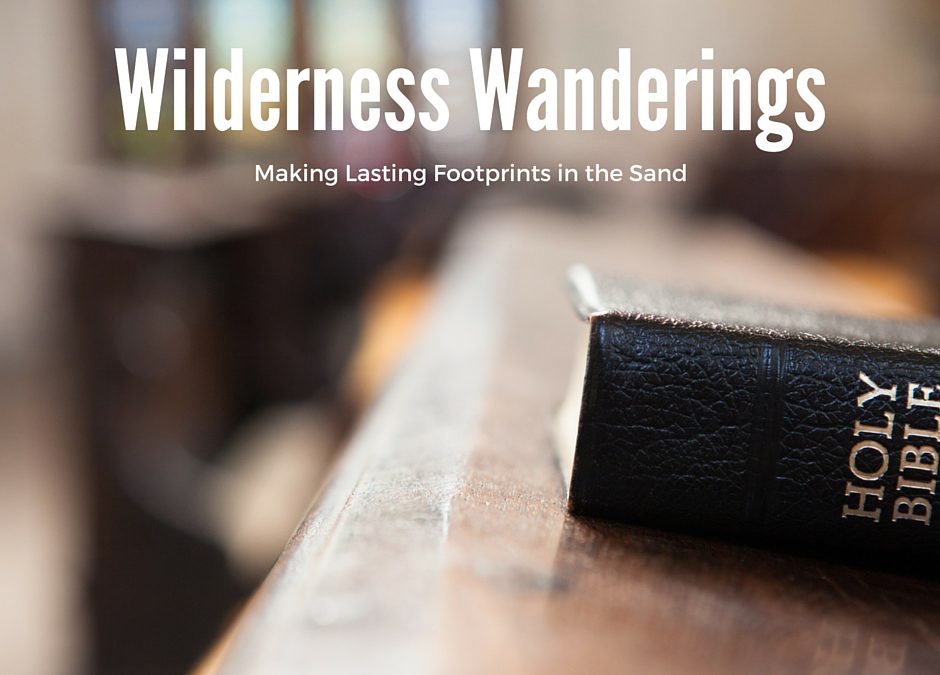One of my favorite childhood fairy tales is the story of the “Three Little Pigs.” Of course, this memorable narrative is listed among the great classic children’s stories of all time. Let me take a moment to re-cap this fictional tale. There were three little pigs that set out to build a house to serve as a shelter against the approaching winter, and to protect themselves from the enemy always lurking about—the dreaded wolf. The materials each pig chose to build with are crucial to understanding the importance of this narrative.
The first pig chose straw. The second pig, sticks. The third pig selected bricks as his walls of protection. Well, the hungry enemy arrived on the scene one day with his sights on one thing: to enjoy a delicious dinner. You can almost picture his mouth watering and his teeth protruding. For any pig, this would be their worst nightmare.
With just one puff of air, the wolf blew down the first house, and then blew away the second house. In the end, these two pigs barely escaped the wolf’s mouth-watering jaws. They ran frantically to the third pig’s house. When the wolf arrived at the third pig’s residence, there were three terrified pigs crouched inside shivering from fear. But, there was something different about this house. As the wolf blew and blew, the house remained intact and the pigs were kept safe. You see, this house was made out of material that could not crumble. No matter how hard the enemy tried, the walls would not budge.
Today, we will examine the walls of protection God has placed around us—walls that cannot be penetrated.
Our lesson comes from Exodus 14:19-31. Please read this passage of Scripture and summarize briefly.
According to Exodus 14:22 and 29, what served as a protection while the Israelites crossed the Red Sea?
The ocean is one of my favorite places to go. I love to stare out at the mammoth body of water and listen to the crash of the waves against the seashore. I sense the power of God’s presence while I walk on the beach, or sit quietly reflecting on His powerful display of sovereignty. However, when it comes to going in the water, I am sort of a wimp. I cannot place one foot in the water without wondering, “Will I get snapped by a crab, stung by a jelly fish, or approached by a hungry shark? Will I get pulled out by a rip current? Or, worse yet, will I get knocked over by a monstrous wave and lose my bearings?” Consequently, I can’t get my mind past the fact that there are many dangers lurking under the waters.
Our story today reminds us that the Israelites were put in harm’s way. God led them into the desert by way of the Red Sea. To protect them from harm, God parted the waters to serve as a protective wall. As long as they stayed on the pathway of dry ground, they were safe.
We approach a topic today that is sure to encourage and comfort each one of us: God’s impenetrable walls.
What was built around the city of Jerusalem, according to 1 Kings 3:1?
All major cities during biblical times built large defensive walls to protect themselves from attack. These walls were usually massive in size, averaging 15 feet thick and 25 feet high. It would take heavy bulldozers and huge machinery to break through these protective walls. In fact, they were so strong; many of them are still standing today. Inside the walls, the people felt safe and secure.
We have mentioned several people throughout our study who found themselves in the midst of the desert. Join me today as we turn our attention to another biblical patriarch: Job.
Read Job 1:1-2:10. In a few words, summarize this story.
According to Job 1:10, what was Job’s protection? Fill in the blank:
“Have you not put a _________________ around him and his household and everything he has?”
Based on the previous story, answer the following questions:
How much power does God hold for our lives?
Is Satan (the enemy) limited? Yes No Explain.
What was a hedge used for, according to Isaiah 5:5?
Hedges in Palestine served to protect vineyards from predators (Isaiah 5:5). Therefore, we can be certain that the Scriptural word hedge means “to protect.” In other words, Job 1:10 communicates that God hemmed Job in with His protection, much like a wall around a city or a hedge of shrubs surrounding a vineyard.
Few stories in Scripture tug at my heart more than the story of Job. The customs of Job’s day may be foreign to us, but the circumstances we might be able to relate with a little more. My children often do not make the best decisions, but my unconditional love for them will never waver. I believe most parents would agree. Almost every day, we hear sad stories about parents who lost a child. My heart recently broke when I heard about the death of a ten-year-old girl in Colorado. I can’t fathom what her parents must be going through.
Imagine how devastated Job was upon hearing the news that all his children had died. No amount of wealth could heal such a broken heart. No words of solace could comfort Job as he mourned his beloved ones. Tragedy struck hard in just one day, and everything Job deemed precious was swept away from him. And all this happened while Job was in the prime of his life and reaping God’s abundant blessings.
We read in Job 1:1 that “[Job] was blameless and upright; he feared God and shunned evil.” Still, Job was thrust into the desert so fast he didn’t have time to ponder what had happened. I can only imagine how this horrible atrocity put Job, a devoted man of God, in a terribly vulnerable spot.
Several principles can be gleaned from the first two chapters of Job:
1. God holds His people in the palm of His hands. Whether we are enjoying the views from the mountaintop, dehydrated from the desert heat, or somewhere in the middle; God’s hedge is always protecting us.
2. Everything is filtered through God’s hands. God holds all authority and is in control of our life. No one, not even our greatest enemy, holds the power to control the intricate details of our life.
3. Satan has boundaries and limitations. Satan is kept on a leash, so to speak. Do I hear an “amen”? God never allows more than we can handle.
4. God has a purpose in everything. There was a purpose in Job’s suffering, and there is a purpose in our suffering as well. We would be wise to seek out His purpose, so this desert time can mold us and change us for His glory.
How do these principles help you in your desert right now?
Based on Psalm 40:11, what two words serve to protect us?
Look up Psalm 91:14-16. These verses offer incredible promises. But they also tell us that for these promises to come to fruition, we need to respond accordingly. Fill in the chart based on these verses:
| Our Response | God’s Promises |
|
|
Fill in the blanks, according to Psalm 27:2-3:
“When _____________ men advance ________________ me to _______________ my flesh, when my ___________________ and my foes ________________ me, they will ________________ and _______________. Though an army _______________ me, my heart will not _______________; though ______________ break out against me, even then will I be __________________.”
Skim the lists below. Circle the ones you sense may destroy you at this time.
Loneliness Depression Addiction (anything)
Financial difficulties Marriage problems Worry/Anxiety
Breakdown in relationship Health issues Insecurity
Fear Hopelessness Jealousy
Despair Doubt Unforgiveness
Other _________________________________________
Each one of these things is like an animal in search of its prey. Without a doubt, we can be destroyed if we get caught in its trap. But take heart, child of the King:
God has put a hedge of protection around you!.
How do the words of Psalm 27:2-5 offer you hope against your enemy?
Write out Psalm 27:6.
Can you sense the protection David felt, even while his enemies surrounded him? I want to encourage you to come before the throne of God and offer up praises of joy no matter how hot the enemy’s pursuit might be. Spending moments of praise to the Almighty One can certainly help us to rise above the adversaries tormenting us.
I am so glad that God is protecting me and my loved ones. Are you?













